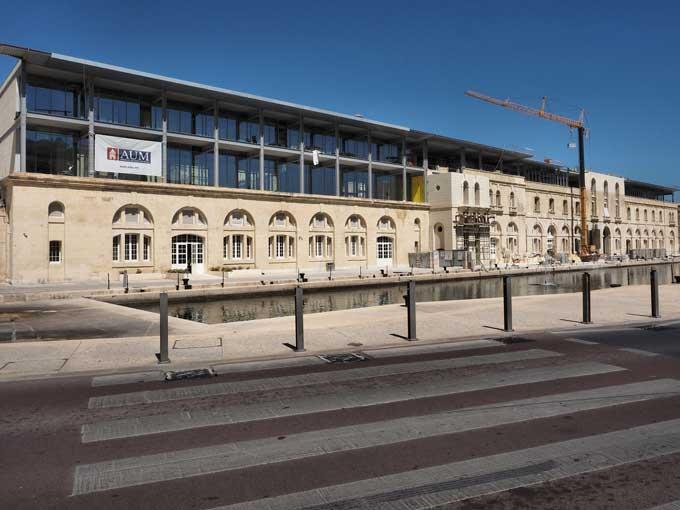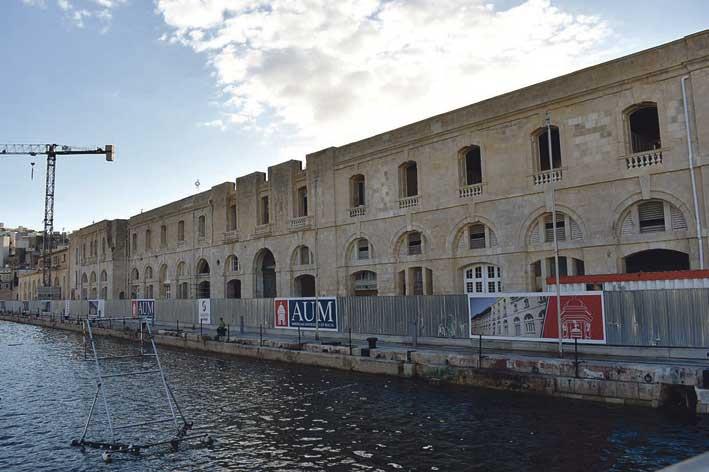Academics who were sacked by the American University of Malta without even the simple courtesy of an explanation after their dream job turned out to be a nightmare had received both verbal and written assurances that their employment would be long-term.
Speaking to The Malta Independent on Sunday, some of these former AUM staff also claimed that they had been "lured" into taking the job with "false promises", explaining how upon arriving in Malta they found a very different reality to the one they had been promised.
Five former teaching staff have now taken the matter before the Maltese courts, where they are claiming that they were unfairly dismissed by the AUM which, they say, is also abusing the six-month probation law.
"Sadeen lured a highly qualified and experienced faculty to give the university a sense of legitimacy - to look good to the accrediting bodies so that they could get operations up and running. It's obvious to me now that they never intended to fulfil the contracts past the probation stage. They have abused the whole idea of a probationary period," one of the academics said.
The fledgling university, currently based in Cospicua's Dock 1 but with plans to expand to virgin land at Zonqor Point, Marsascala, has been struggling with the Malta project, and its first few months have been characterised by the sacking of staff and the failure to attract more than a few dozen students.

The AUM project was controversial right from the start, mainly because of the government's decision to grant the education facility a large parcel of agricultural land in Marsascala but also because the Jordanian Sadeen group behind the project has no prior experience in the education sector.
The AUM launched its first academic year in the autumn of 2017. When members of this newsroom visited the site in February this year, only a handful of classrooms had been finished and a large part of the campus was still a construction site.
The former teaching staff told this newspaper that they had responded to online vacancy adverts. One such posting was placed in The Chronicle of Higher Education, which is the highest level academic newspaper in the United States.
The salaries that AUM promised raised a few eyebrows because the amount is considerably higher than the average academic salaries offered in the US. When they questioned AUM about this, the applicants were given the impression that the Jordanian investors had a lot of money to spend. One former faculty member said owner Hani Salah was described to them as having "money coming out of his ears".
Interviews were subsequently carried out over the internet. The prospective applicants were interviewed by AUM provost John Ryder.
"Ryder seemed kind and intelligent and I got the impression that he was genuinely interested in setting up an ethical educational institution based on high US university standards," one of the former teaching staff said.
But when contracts arrived, the faculty found an unusual document with a non-standard, six-month probationary period. "I've never worked in an academic job with a probationary period," said one of the former teaching staff. "Ryder even acknowledged that this was problematic and knew we instructors would balk at it and he assured us by email and webchat that this would change and that we would probably receive new contracts during the initial school year that were more in line with what we were used to."
Another faculty member further explained that Ryder said that although the contract was very non-academic and even "bizarre", it would be replaced by a standard, academic one.

This newspaper was also told that Ryder gave the applicants "verbal and written assurances" that AUM was seeking to employ them in the long term, and that they were informed about the opportunities for promotion that would be available to them in the future.
"When I emailed Ryder to inquire why a faculty member would not be invited to return for a subsequent year of employment, he replied: "Our intention is for faculty to be able to work at AUM long-term'," explained another of the former faculty.
A different reality
The applicants eventually moved to Malta and began teaching in late August. They found things were very different to what had been described to them. "Several of the administrative staff, including the HR manager, the Student Admissions Officer and the marketing people had been fired or were in the process of being fired," said one former member of staff.
One former faculty member expressed shock at the working conditions: "The classrooms were unfinished. There were cables running along the corridors, there was flooding whenever it rained, bathroom doors did not close properly and some of the classrooms had a really bad smell."
"Some classes had as little as one student and many only had four," added another.

Dismissals and mismanagement
The lecturers grew concerned about a growing stream of dismissals, the constant bad press and the fact that they had to do jobs previously undertaken by the sacked administrative staff.
"We were suddenly burdened with tasks such as marketing, admissions recruitment, student affairs and human resources: keep in mind that we are academic staff."
There were also management failures, they say. Pointing their fingers at the Jordanian owners, they said that Ryder, the provost, was not allowed to run the university in the way he wanted to run it and that he was not given an operating budget.
"The students paid €100 each, which was supposed to go towards organising events and addressing their needs, but we never saw that money. Someone would come in randomly, from Jordan I guess, and they would put cash in a locked box. They never kept track: it was nuts. Who runs a college like that?" said one of the academics.
Sacked without explanation
The former faculty staff said they had approached John Ryder with their concerns about possible termination and were told something to the effect that they would be fired 'over his dead body'.
"Ryder gave us the impression that he wanted to protect us. He made us feel safe and protected. In the end we realised that we had been lied to."
Another former lecturer said: "I went to see John Ryder in his office in December 2017 and asked him straight if there were going to be any dismissals at the end of the first semester. 'No,' he replied adamantly. 'There's absolutely no risk of that. If they try to sack even one of you, I'll put my job on the line'."
Several other faculty members said that John Ryder personally assured them that he would resign if even one of them was fired.

Feeling comforted by the provost's word, most of the faculty staff travelled to their respective countries for the Christmas holidays, many of them also being given extensive work duties to fulfil during their break.
Then, in the first week of January, they received their marching orders. With no explanation, they were told that their jobs, which were five months into their six-month probationary period, were being terminated. When they asked why they were being dismissed, Ryder told them that he could not comment on the matter for 'legal' reasons.
The academics say they have suffered great distress as a result of their sacking. "People uprooted their lives for this. Some of us sold our homes, moved their families half way across the world, shipped their possessions across the oceans. People left positions to come here. We would not have done that had we believed this was a temporary position," said one academic. "We were given to understand that the probationary period would be a time in which we could prove ourselves, not a testing phase for the university to see if it was financially solvent. They lured us in with false promises."
The former faculty claim that, apart from their unexplained sacking, the AUM did not pay their salaries on time. "Our pay check always came late, causing me many problems when it came to paying my bills," one of them said.
The lecturers also say that when they asked for their December salary, despite the fact that they were no longer working for the AUM, they were told that they would not be paid until they had completed their Course Evaluation Report, a lengthy task, and returned their laptops and health insurance cards. The salary was eventually paid very late, in mid-January.

Court action
Five of the former lecturing staff have now filed a judicial protest in which they are claiming unfair dismissal. "We are arguing that AUM is abusing the probationary period. They had their end of the contract to uphold and they were meant to ensure that their business was solvent and that they were pouring enough resources into the recruitment of their students."
The academics who spoke to this newspaper insisted that they were replaced by 'questionable' individuals, pointing to recent reports about staff members who have been accused of plagiarism or of lying about their academic background.
"In the end, this is harming their students," one of the academics concluded.